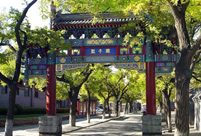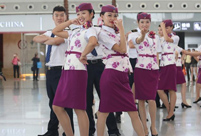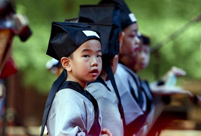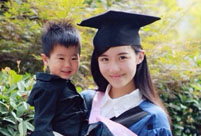BEIJING, July 4 -- Chinese President Xi Jinping's visit to the Republic of Korea (ROK) could be the beginning of a new era in China-ROK relations.
Agreements reached during his visit include deals for the launch of RMB clearance in Seoul, political and security cooperation, and expanded people-to-people exchanges.
The visit has plotted a clear course for the future of relations, according to Wang Fan of the China Foreign Affairs University.
ECONOMIC COOPERATION
"Many issues that had been idling were discussed, with solid results," said Wang.
On Thursday, China and ROK agreed on direct trading between the RMB and won, the ROK currency, and signed a deal on renminbi (RMB) clearing in Seoul. Eliminating the need to exchange through U.S. dollars will save on transaction fees and hedge against foreign exchange volatility.
Beijing and Seoul also agreed to try to conclude FTA negotiations before the end of this year.
"The positive attitude to a free trade agreement will set a good example for other countries in East Asia," said Wang. Once established, the agreement will contribute to the progress of a China-Japan-ROK FTA and economic integration.
While the achievements in currency and trade are a natural result of increased economic exchange, Wang believes they were facilitated by Xi's visit.
China is already the ROK's largest trading partner and largest market for Korean exports, while ROK is China's third most important trading partner and was the fifth biggest source of foreign investment in 2013. Two-way trade totaled 274 billion U.S. dollars last year, and the leaders have promised a rise to 300 billion U.S. dollars by 2015.
TRUST AND REGIONAL STABILITY
Thursday's joint statement declared denuclearization and peace and stability on the Korean Peninsula to be in the common interests of all countries involved in the six-party talks.
The six-party talks, involving China, the Democratic People's Republic of Korea (DPRK), Japan, the ROK, Russia, and the U.S. have been suspended since late 2008.
Xi told Park that China and ROK should become partners that share common development, commit to regional peace and Asia's revitalization, and boost world prosperity. Beijing and Seoul share an unavoidable responsibility to maintain regional tranquility.
PEOPLE-TO-PEOPLE EXCHANGE
Both sides will celebrate the Year of Chinese Tourism in ROK in 2015 and the Year of South Korean Tourism in China in 2016 and elevate personnel exchanges to 10 million in 2016.
The two sides reached a consensus on waiving visas for service passport holders and decided to gradually expand visa-free coverage.
"People-to-people exchanges are already in a very good phase," said Wang. "These measures ensure the exchange will be continued."
Chinese and South Koreans made a record 8.22 million trips to each other's countries last year. More than 60,000 Chinese students are studying in ROK, which has the same number of students in China.
The two countries also pledged cooperation in such areas as public diplomacy, culture, film production, panda research, protection of cultural heritage and hosting sports events.
"These agreements create a favorable atmosphere for deepening mutual understanding between the two nations," said Wang.
 Featured hutongs in Beijing
Featured hutongs in Beijing Separate college entrance exam
Separate college entrance exam Flash mob dance
Flash mob dance Picturesque scenery of Ghost City
Picturesque scenery of Ghost City Children attend First Writing Ceremony
Children attend First Writing Ceremony Female master poses for graduation photos with son
Female master poses for graduation photos with son Silk Road, China's Grand Canal listed as World Heritage Sites
Silk Road, China's Grand Canal listed as World Heritage Sites PKU students imitate famous paintings in real-person photos
PKU students imitate famous paintings in real-person photos Chinese 'Slumdog Millionaire'
Chinese 'Slumdog Millionaire' Islands in S. China Sea better shown on new vertical atlas of China
Islands in S. China Sea better shown on new vertical atlas of China Girl takes father’s portrait to travel the world
Girl takes father’s portrait to travel the world Images of Xi'an: Part one
Images of Xi'an: Part one In Pictures: Female fans of World Cup
In Pictures: Female fans of World Cup Top 20 hottest women in the world in 2014
Top 20 hottest women in the world in 2014  China's top 10 representative architectures
China's top 10 representative architecturesDay|Week|Month